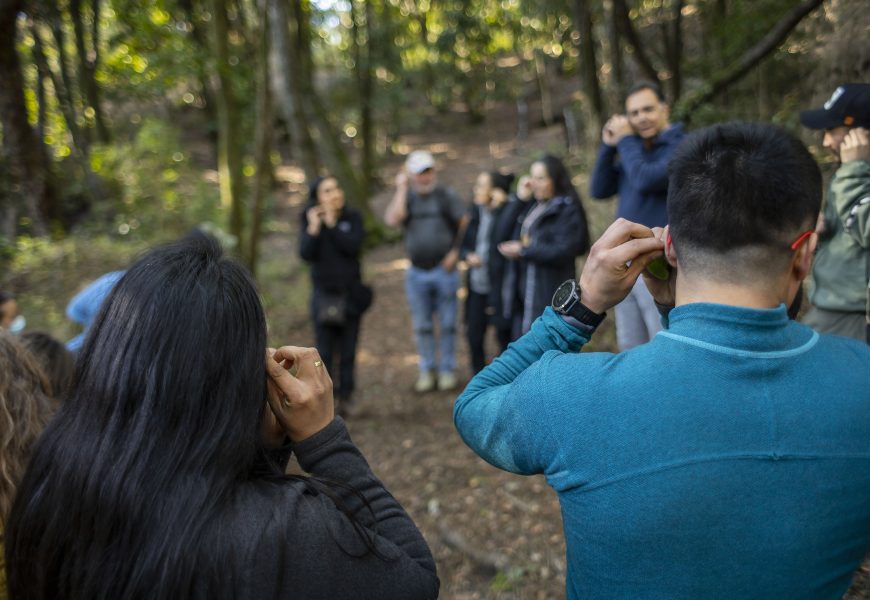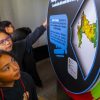By: Alonso Benavente Puentes, Journalist – UdeC Biotechnology Center / alobenavente@udec.cl
Images: Courtesy of Campus Naturaleza/Gradual Agency.
Leer en español
The International Day of Forests was established in 2012 by the United Nations General Assembly to raise awareness about the importance of forests and their conservation. March 21st was chosen because it is the equinox, a key moment in the natural cycles that reinforces the relationship between forests and life on Earth.
For Dr. Marta Fernández Reyes, an academic from the Forestry Department of the Faculty of Forestry Sciences and researcher at the UdeC Biotechnology Center, commemorating this date is fundamental, as it highlights the relevance of forests for the health of the planet and the ecosystems.
“For communities, forests are spaces for leisure and recreation and are a vital energy source for wood and non-wood products. They are home to an immense biological diversity, which includes microorganisms, fungi, insects, birds, and mammals. These play a crucial ecological and social role in protecting soils and regulating climate.”
Getting to know to take care
According to the United Nations, forests cover about 31% of the Earth’s surface and are home to almost 80% of the Earth’s biodiversity. They are essential for absorbing CO₂, helping combat climate change, and providing millions of people worldwide with oxygen, water, food, and materials. They are also home to many indigenous communities and an enormous species diversity.
In Chile, the variety of native species is relevant for biodiversity and the development of scientific studies that can be applied in the productive sector. According to Dr. Fernández, “Our country has a valuable genetic reservoir that can be conserved thanks to various protection initiatives. Biotechnology and molecular tools make it possible to evaluate the genetic diversity of these species and decipher the molecular mechanisms that determine their adaptability under biotic and abiotic stress conditions, identifying those with greater resilience to climate change and potential for sustainable use.”
The study of native species also allows identifying opportunities for the pharmaceutical and nutraceutical industries by combining the ancestral knowledge of the native peoples with modern scientific techniques.
Forests and human health
Along with the importance of forests for research and the development of innovations for the productive and service sector, initiatives linked to people’s health, such as forest bathing, are also being developed.
The project “Specialized metabolites in Chilean species involved in the beneficial effect of forest bathing” is supported by Campus Naturaleza and the Faculty of Forestry Sciences, both of the University of Concepción, and seeks to promote physical and mental well-being.
Dr. Martha Hernández, the project’s researcher, explains that studies have been conducted since the 1990s demonstrating the benefits of forests for human health, such as strengthening the immune system, improving cardiovascular and sleep health, and reducing stress. “In addition, certain compounds released by forests have antioxidant, anti-diabetic, anti-tumor, and anti-inflammatory properties,” the academic mentions.
“Forest bathing has also been shown to have a positive impact on psychological well-being, favoring connection with nature and reducing mortality from cardiovascular diseases,” she concludes.
The International Day of Forests is an opportunity to recognize the value of these ecosystems, not only as the planet’s lungs, but also as sources of biodiversity, scientific innovation, and benefits for human health. Through research and responsible use, biotechnology offers key tools for its preservation and sustainable use, which benefits society and the environment.
Last modified: 3 de septiembre de 2025






